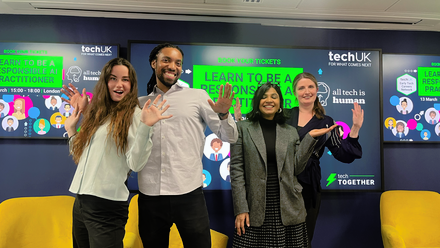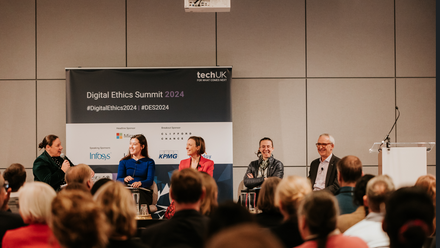What's the story AI will tell about you?
During the past month Solid Water Marketing Agency has had three inbound requests to help with personal brand strategies for high profile business people.
This is NOT about:
📰 getting their face on the cover of the Forbes
📸 “getting out there”
👑 inflated egos
🤳🏻 becoming Instagram influencers.
All of them, albeit having very different goals, have a very specific business challenge which they believe will be overcome with a strategically built personal brand.
Some of the common personal brand goals the agency deals with include:
- A serial tech startup founder is raising a funding round. They understand investors will look them up online. What will “online” say about them? What sort of picture will it paint and what sort of story will it tell?
- A wealthy person with zero online presence is launching a consumer business and needs to start building their personal brand to use as a springboard for the consequent business launch. By the time when the business opens its doors, the owner needs to have established a presence as a thought leader in their industry.
- A foreign online influencer is willing to enter the US market and launch a book. To earn trust from the US audience they need to build a local profile which is culturally relevant to the American consumers.
For years, Search Engine Reputation Management (SERM) has been the go-to for shaping online presence. But the ground is shifting. With the rise of AI search tools, the old rulebook is becoming obsolete.
It’s time to think about AI Reputation Management.
Why the change?
Matt Lerner recently circulated a newsletter which claimed SEO as we know it is dying. Because the algorithms driving AI search (like Large Language Models) rank content very differently.
Daria Partas, CEO & Co-Founder at Solid Water marketing agency:
I would say from a PR perspective, it is about getting back to the basics. Over the past three years, we’ve witnessed a shift away from attempts to "game" the algorithm with thousands of redundant backlinks and long-winded blog posts that captured all the possible keywords but had no substance. Instead, the focus has moved toward shorter—often the shorter, the better—and highly relevant content that delivers real value to the target audience. But now it seems, there is no way around it and one needs to seriously consider getting in touch and building relationships with those real people called editors and journalists. The good news is that in a world where smear campaigns and blackmail tactics (which leverage well-indexed scam websites) are increasingly common, investing in thought leadership through credible media outlets is far more effective than pouring resources into backlinks. And here is another piece of good news as a bonus - your social media profile finally counts!
AI vs. Wikipedia
It’s also interesting to note how information sources differ. Ask a Large Language Model “Who is Person X?” and you might get information pulled from social media profiles alongside traditional sources.
Wikipedia, in contrast, adheres to stricter editorial standards, typically relying on established media publications and largely excluding social media content as primary sources.
This highlights the evolving (and sometimes less rigorous) nature of sourcing in AI-generated results.
Daria Partas, CEO & Co-Founder at Solid Water marketing agency:
In the past when high-profile clients turned to my help for personal branding strategies, I would have been reluctant to advise on maintaining an active social media profile (apart from LinkedIn for those who know they are googled by investors and journalists). For many, it was a much dreaded exercise for the lack of their time. We could work with that - focus less on social media and invest more in organic media coverage. However, for executives who may have previously dismissed social media as trivial or unprofessional, this shift from good old SEO to AI should serve as a wake-up call: your social media profiles are now one of your most important owned media channels. Unlike Wikipedia or other third-party platforms, you have full control over what appears there—and that matters in an AI-driven world because Large Language Models actually read your social media profiles and bake them in their responses.
How AI ranks content vs. Traditional SEO
Maria Tsarkova, co-founder of Solid Water and Head of Growth at Ooredoo Fintech:
Understanding the difference is key to creating content AI cites, rather than content it ignores (or worse, misrepresents).
Let’s get one thing straight: the way AI evaluates content is not how Google’s old-school SEO works.
➔ Authority
You can stop chasing backlinks. Large Language Models (large language models like ChatGPT or Gemini) determine authority based on how often you're mentioned in trusted, independent sources—not whether they linked to you. Think peer-reviewed journals, top-tier business publications, respected blogs, and expert panels. Frequency across quality sources matters more than any one big link.
➔ Content Appetite
AI isn’t just scanning for keywords—it’s curating sources worth citing. For basic definitions (“what is cloud computing?”), it won’t credit anyone. But for original thinking—proprietary data, case studies, unique frameworks, or distinct POVs—Large Language Models need attribution. That’s your opportunity to stand out and get cited by the machines.➔ Relevance
This is where AI breaks from traditional SEO. Instead of just ranking by authority or backlinks, AI focuses on contextual relevance. It tries to follow the user’s intent through a chain of increasingly specific questions—like a conversation that gets sharper with every turn. If your content helps people move forward on that journey, you're in the game.
Why personal branding matters more than ever
For executives and business owners, your reputation isn’t just about visibility—it’s about influence and resilience.
A strong reputation inspires trust among stakeholders and positions you as an industry authority. In an era where reputations can be attacked or misrepresented online, proactively managing your narrative is essential
- we are not here to lecture you on something you very well know.
If you’re facing challenges like smear campaigns—tactics often used against High-net-worth individuals to damage reputations or exert pressure—your best defense is a strong offense.
Here are two things we recommend to all of our clients stressing about their online presence:
- Invest in thought leadership: Secure features in respected publications that align with your expertise and values.
- Approach social media strategically: Use platforms like LinkedIn to share insights and engage with your audience in smart ways (ask us how).
Your action plan How to gain visibility with Al:
- Get cited, mentioned, and featured in respected publications within your industry.
- Build a consistent online presence across platforms where experts in your field congregate.
- Treat platforms like LinkedIn as extensions of your thought leadership strategy.
The takeaway
The shift from Search Engine Reputation Management (SERM) to AI Reputation (AIRM) Management is happening now—and it’s reshaping how reputations are built and maintained online. For business owners and high-net-worth individuals especially, this is a moment to lean into thought leadership while embracing social media as critical components of reputation management. You are in much more control now!










